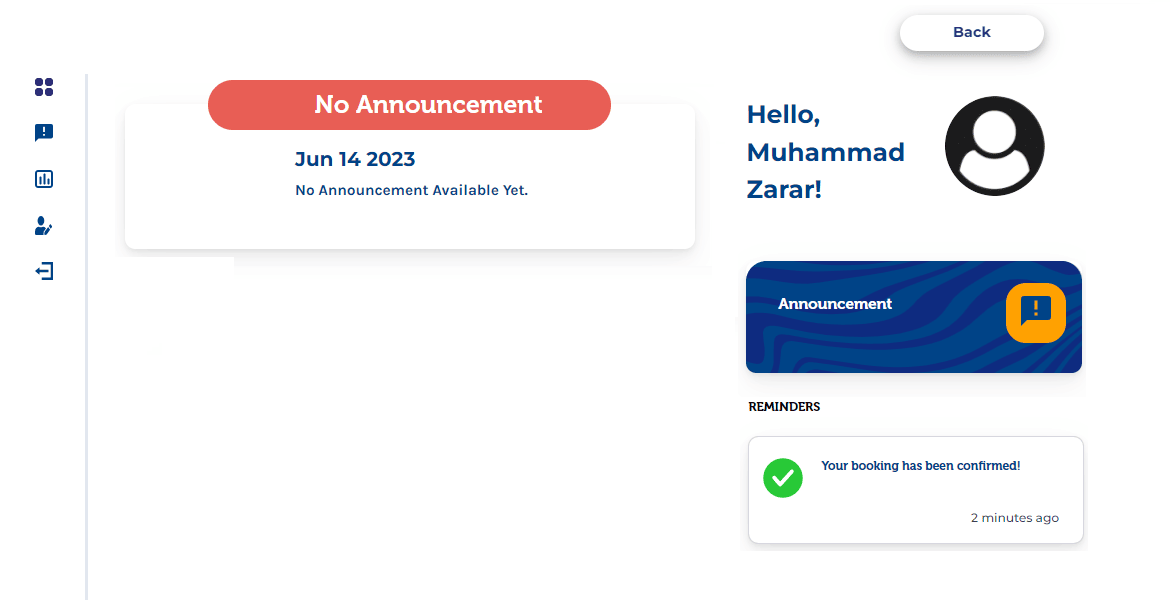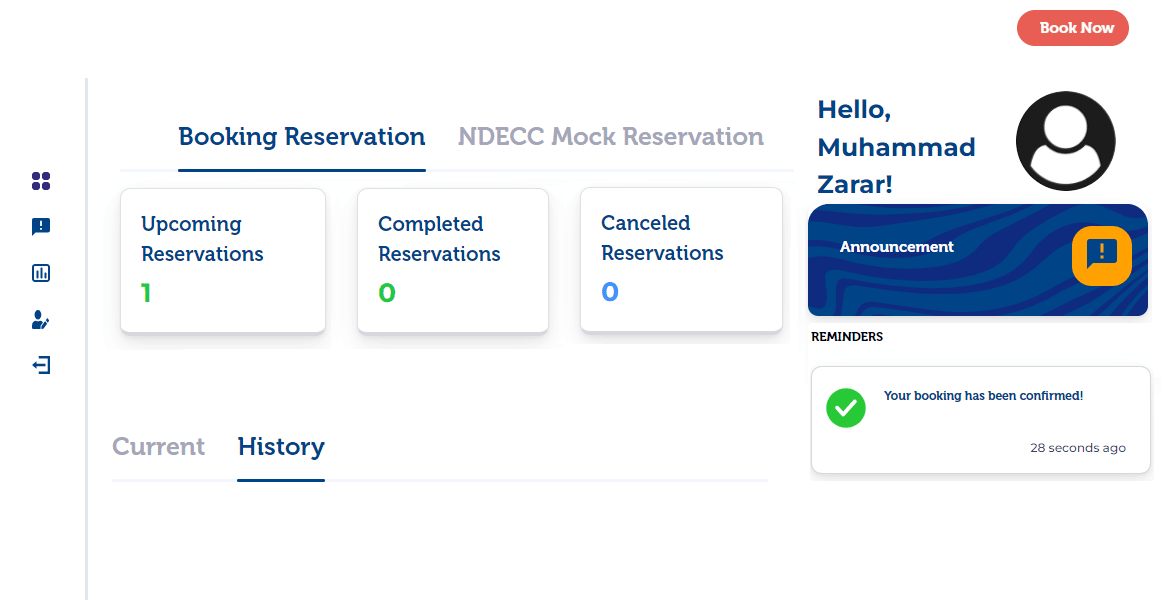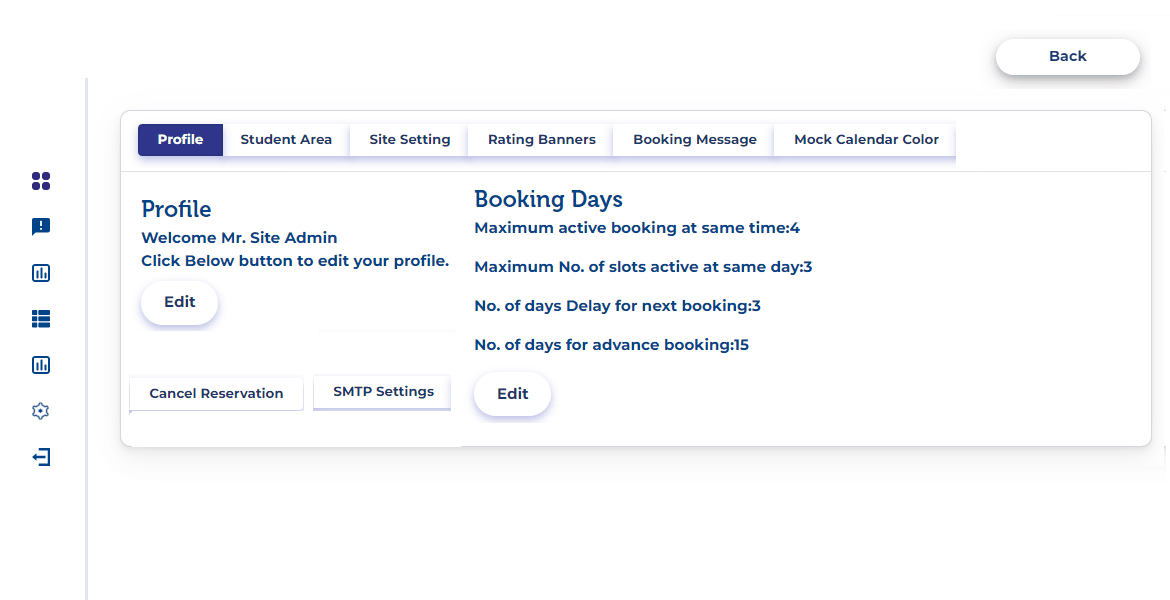Booking management system
Overview
booking system also encompasses course bookings, which are offered on a weekly basis, excluding weekends. We have meticulously crafted a course schedule that caters to diverse subjects and levels of expertise. This schedule is thoughtfully designed to align with the availability and requirements of our students.
booking system is a comprehensive platform designed to facilitate the seamless conduct of various types of exams. With our system, students have the convenience of enrolling in a diverse range of exams that cater to their educational needs and career goals. Whether it’s academic assessments, professional certifications, or specialized exams, our system accommodates them all.
Requirements
Our solution
Customization Requirement: Multiple Resource Types
Implement a flexible resource management system that allows the creation and management of multiple resource types. This can be achieved by defining resource categories and attributes specific to each type. For example, if the system is used for booking rooms and equipment, separate resource types can be created with distinct attributes and availability rules.
Customization Requirement: Booking Availability Rules
Implement customizable availability rules to define when resources can be booked. This can include defining business hours, blackout dates, recurring availability patterns (e.g., weekly or monthly), and configurable booking duration limits. By allowing administrators to set availability rules, the system can adapt to different scheduling needs.
Customization Requirement: User Roles and Permissions
Implement role-based access control to manage user permissions within the booking resource system. For example, administrators may have full access to create, modify, and delete bookings and resources, while regular users may only have permission to view availability and make bookings. This ensures proper access control and security.
Customization Requirement: Reporting and Analytics
Implement reporting and analytics capabilities to provide insights into resource utilization, booking trends, and other relevant data. This can include generating reports on booking frequency, resource availability, popular time slots, and user activity. By analyzing this data, organizations can make informed decisions to optimize resource allocation and enhance the booking system's efficiency.
Customization Requirement: Mobile Accessibility:
Responsive design for access and usability across devices (desktop, mobile, tablet).
Mobile apps or mobile-friendly web interfaces for on-the-go booking management.
Complex Data Model and Relationships: Building a booking resource system involves managing complex data models and relationships. You need to design and implement a database structure that can handle resources, bookings, availability, and user interactions.
We have planned database structure carefully, considering the relationships between resources, bookings, and users. Utilize CodeIgniter's database migration feature to create and update the database schema. Use relational database concepts like foreign keys and indexes to maintain data integrity and optimize query performance. Additionally, leverage CodeIgniter's Active Record or ORM (Object-Relational Mapping) libraries to simplify database operations and manage relationships effectively.
Results:
A booking resource system is a web-based application designed to facilitate the efficient scheduling and management of various types of resources, such as rooms, equipment, or facilities. It enables users to create, modify, and cancel bookings, check resource availability, and handle conflicts. The system typically includes features like user management, calendar-based scheduling, notifications and reminders, reporting and analytics, and customization options. Challenges in developing such a system from scratch in CodeIgniter can involve designing complex data models and relationships, implementing robust scheduling algorithms, and ensuring data integrity and performance. Overcoming these challenges requires careful planning, efficient database design, and effective scheduling and conflict resolution mechanisms.







